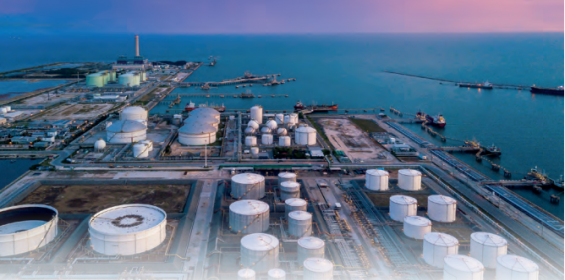How the oil & gas sector can manage employee welfare
Published: 10 May, 2023
As well as dealing with increasing scrutiny regarding their impact on the environment, the nature of the Oil & Gas sector means that employee welfare is something that must be at the forefront of an organisations’ thoughts. Experts at FPE Seals have dived deep into the numerous ways employee welfare can be managed.
The Oil & Gas industry can take its toll on both the physical and mental wellbeing of employees, and in 2021 there was a rate of 317 injuries per 100,000 full-time equivalent workers. With this in mind, what steps can be taken to help manage employee welfare, and how can they be implemented?
Training and education
Training and educating employees of the dangers in the industry and how they can minimise risk is vital. Training doesn’t just mean a course at the beginning of employment or at the start of a job. Regular refresher courses are important to remind employees of their responsibilities, and to keep them safe in an often-harsh environment. It is important to engage employees in the training; think interactive sessions rather than just having employees read a handbook or listening to a talk for hours on end. More interactive sessions and more engagement will often lead to a better understanding of what is being taught, and moving forward, a reduced chance of risk and injury. Employees will also feel more effort has gone into the training by the organisation, making them feel more valued in an industry where training and safety protocol is of the highest importance.
Health and safety
Improving health and safety standards and reducing the risk of any incidents are very important in the oil & gas industry. The nature of the work means that any incident can be very damaging to the environment, equipment and even life. Health and safety these does beyond just “hard rules” written for people to follow, although this does form the basis of training and give everyone something to work from and relate back to. Regular assessments, monitoring and immediately dealing with any incidents are paramount to increasing the health and safety standards in the industry, as well as employee welfare. In addition, it is vital to learn from any mistakes or accidents, have regular feedback and build this into any training programmes as required.
Mental wellbeing
In the Oil & Gas industry, mental health is very important. Workers are often away for long periods of time, away from their friends and family, their home comforts and at times they will feel isolated. Making sure employees can stay in contact with their friends and family is important, as is ensuring they have access to items to keep them occupied and entertained during any downtime. Good quality food and access to a gym or exercise equipment will also help with the mental wellbeing of those in the oil & gas industry and is something for employers to consider offering as standard.
Introducing seemingly small steps is something that has proven to be something that has positively affected workers and contractors in the case of Shell Egypt, and their Care for People programme. After obtaining worker feedback prior to the launch of the project, Shell introduced changes based on what they had obtained from the employees. They subsequently introduced good living conditions to enable rest, good food to enable physical health and wellbeing, and WIFI to allow workers to communicate with their families and alleviate homesickness. Workers appreciated the steps taken by the organisation and gelt more engaged and aligned with the company. As well as having an excellent health and safety record with Zero Lost Time Injuries, the project was actually completed ahead of schedule and with a reduced staff turnover and an improved productivity.
Well maintained equipment and machinery
Vast amounts of machinery are utilised in the oil & gas industry, and it is important for various reasons to keep this well maintained and in good working order. Good servicing, ensuring you regularly replace parts such as piston rings and cylinders to prevent breakdowns and enforced downtime, but also to prevent a malfunction on a machine that could cause an injury or worse. Preventative maintenance is important as it can also assist without avoiding costly machine breakdowns and extended downtime. This, as well as helping with overall productivity and output, also impacts on welfare as extended downtime, particularly in offshore work leaves workers with very little to fill their time and can also impact them financially depending on terms of employment.
Conclusion
There are numerous ways employee welfare can be managed in the oil and glass industry, and as we have seen this can be in part due to organisations taking seemingly small and simple steps. Value your workers, engage them in as much of the business and as many processes as possible, train and educate them and show a human, empathetic side. The industry can be harsh, lonely, and brutal, so importantly businesses should show they care and keep them safe. It is incredibly important for a company to manage the welfare of employees effectively, and as shown if done so, it will reduce turnover of staff, result in a more productive businesses and create a better working environment for everyone.
For further information please visit: www.fpeseals.com
https://www.linkedin.com/company/fpe-seals/







